How to Become a Race Walking Official - How to Fill Out a Tally Sheet
Watch the Entire Page as a Video
A race walking judge must keep a complete record of their actions. This occurs on a judge’s tally sheet. This lesson will instruct a judge on how to fill it out appropriately.

We will demonstrate two races. For the first race, we’ll fill out the tally sheet for you as the race walkers go by. In the second race, you’ll be asked to fill out your own sheet.
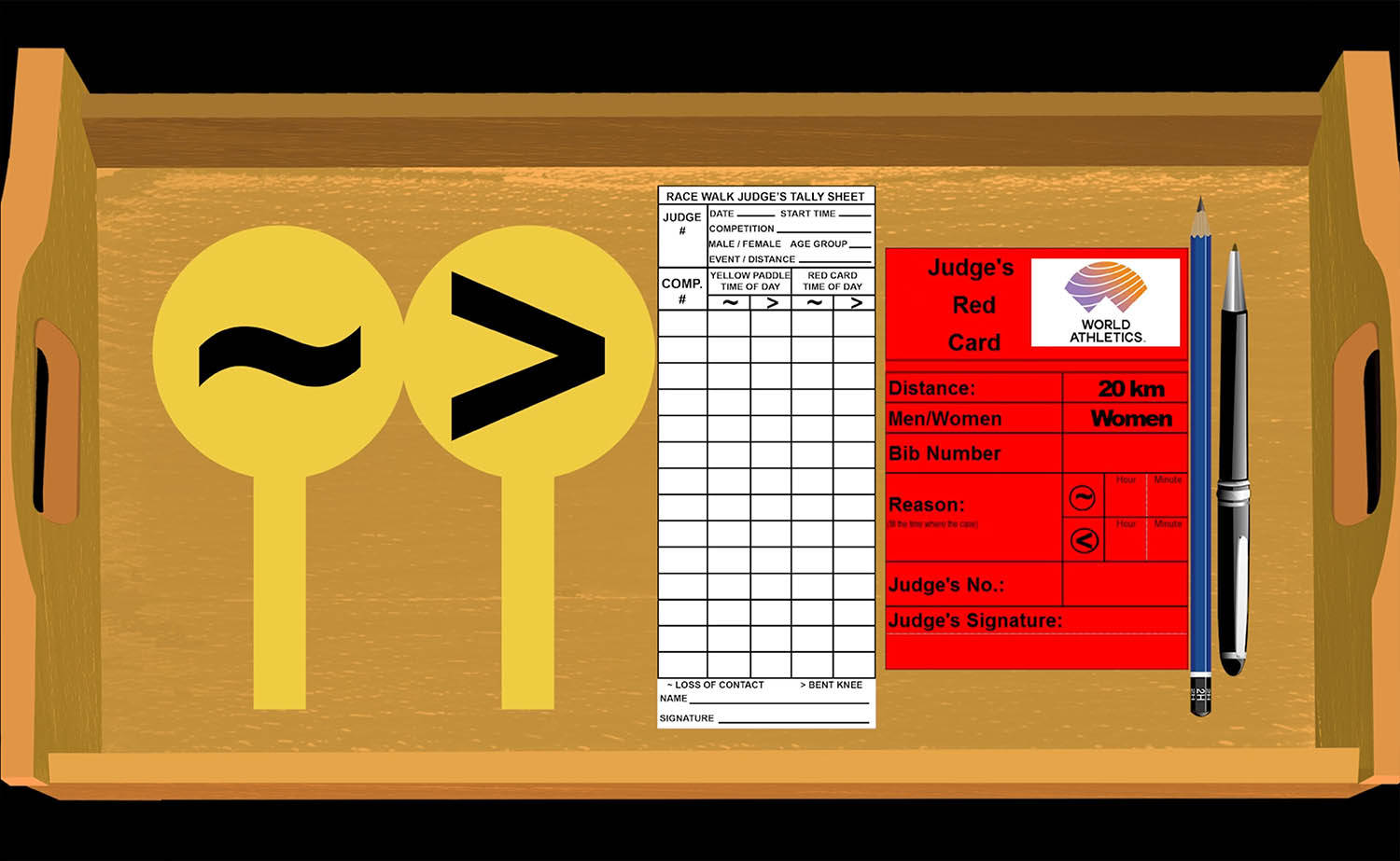
You will have:
- a race walk judge’s Tally Sheet
- two Yellow Paddles, for cautioning walkers, one with the symbol for Loss of Contact on both sides and one with the symbol for Bent Knee on both sides.
- Red Cards to propose disqualifications that will be sent to the Recorder or Chief Judge.
- a pen or pencil and a wrist watch with the time of day synchronized with your fellow judges.
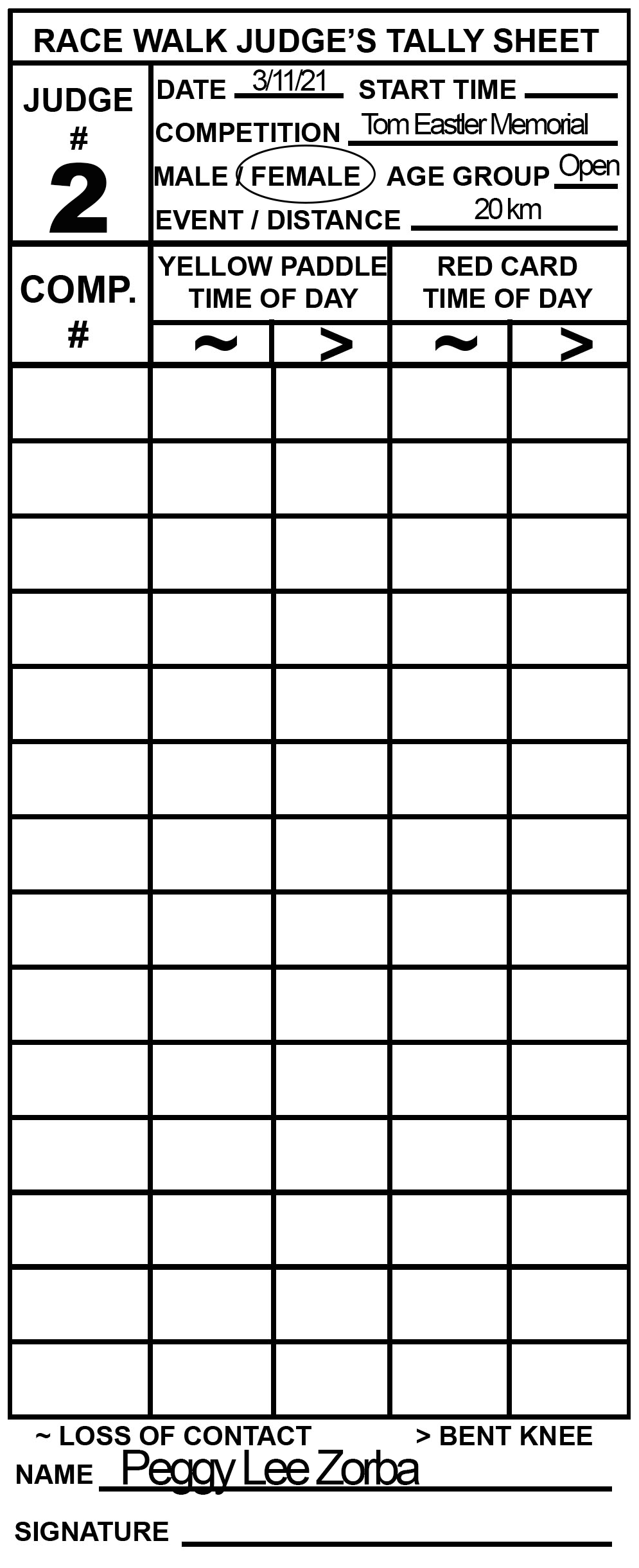
You are Judge #2, and we write your number on the Tally Sheet as well as on the Red Cards. Note we have filled in the descriptive information at the top and printed your name at the bottom.
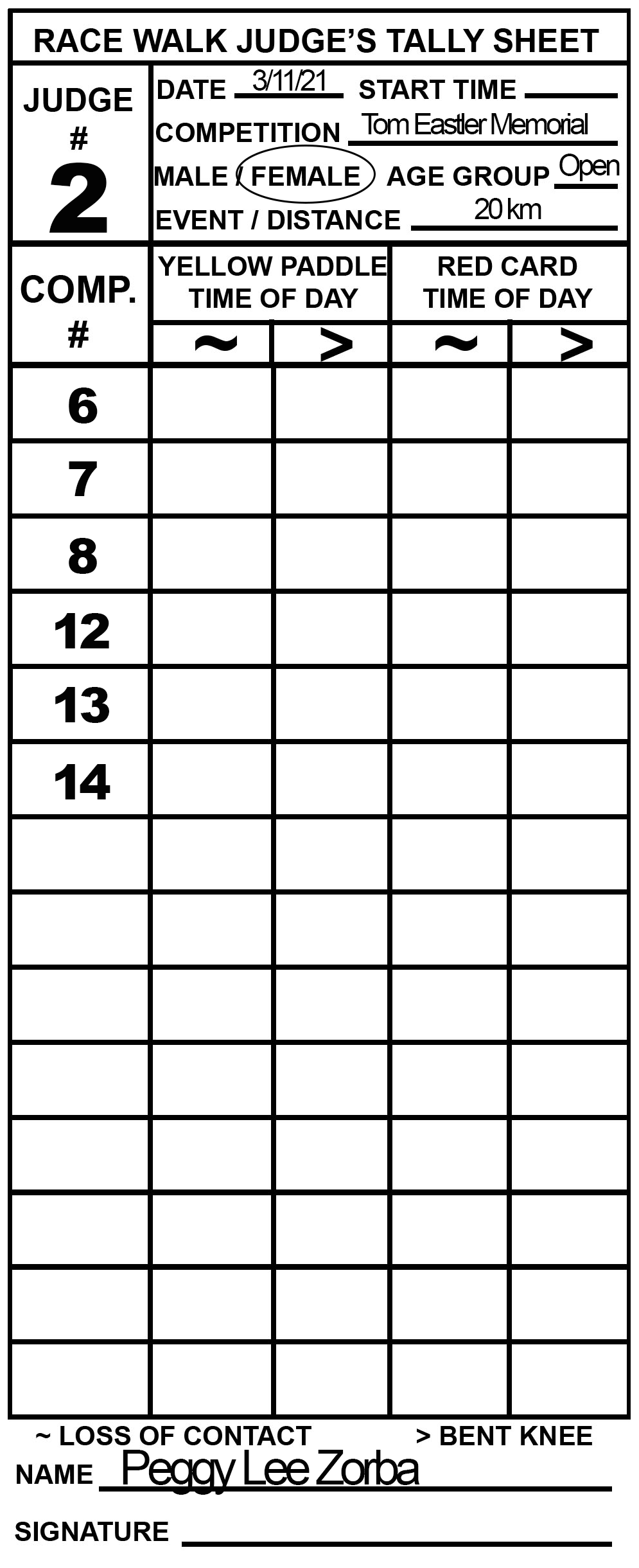
Both races will only have six competitors, so we fill in the competitor bib numbers on the Tally Sheet.
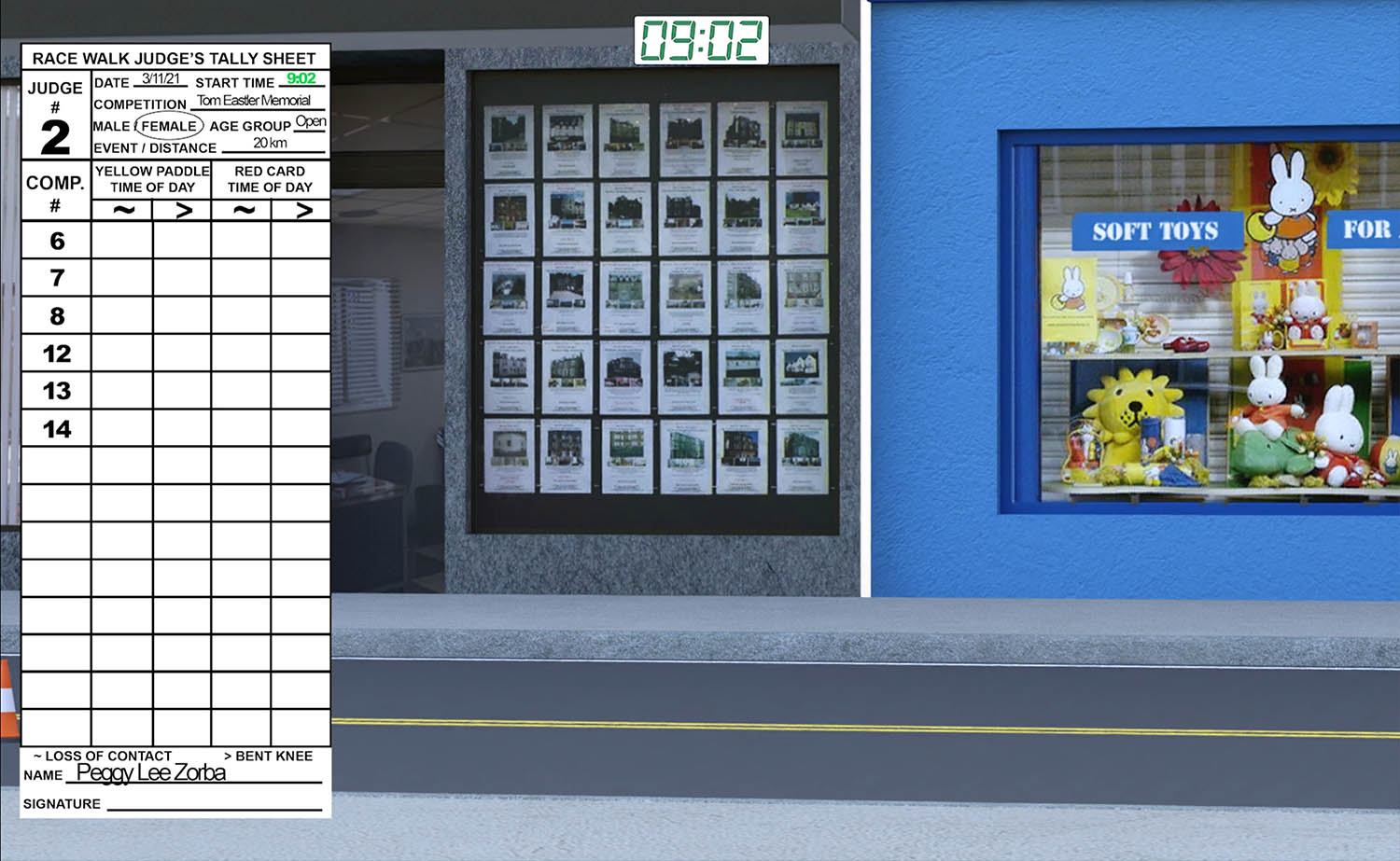
The race starts. Note the time in the upper middle of the screen (9:02 AM). That is the time of day. We use the time of day when making notations on the sheet. We record the time of the start on the Tally Sheet.
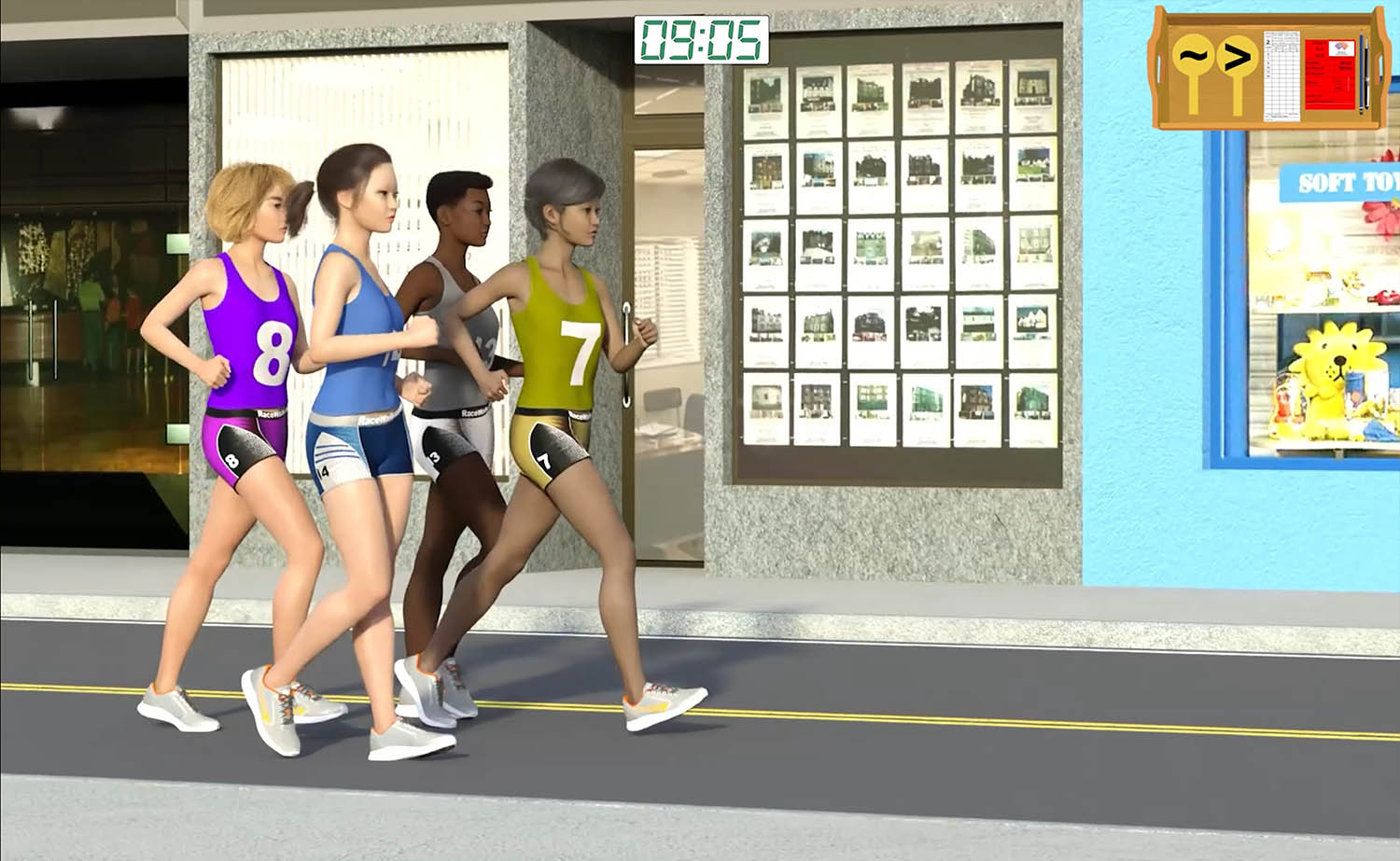
Three minutes go by before the first walkers come into view. It is now 9:05 AM. All of the walkers in this pack of 4 competitors are legal; they are walking within the definition of race walking.
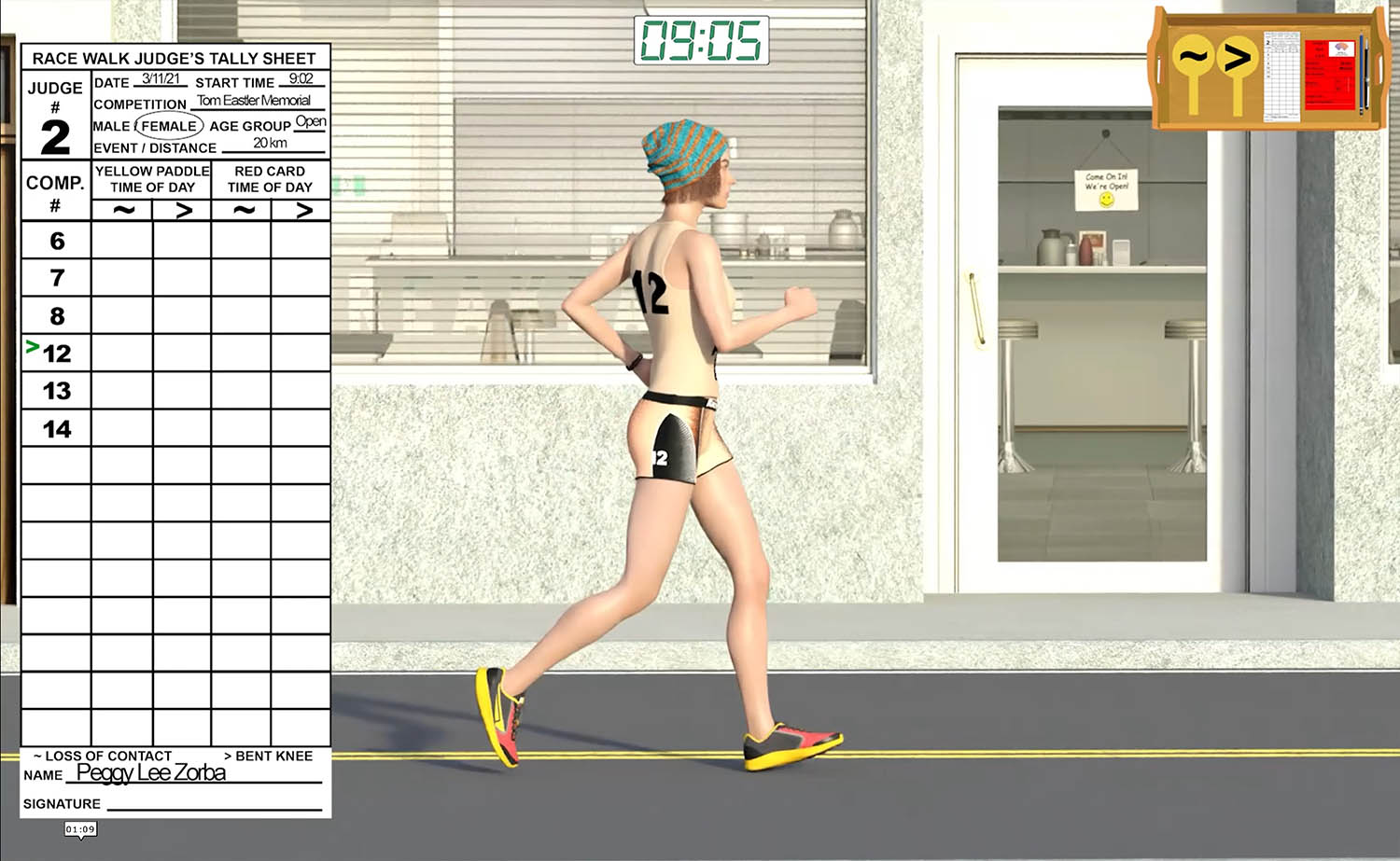
Race walker 12 is demonstrating bent knees on contact. We make a note in the margin next to her competitor’s number to look for her on the next lap so we may show her a yellow paddle for bent kneed walking, if when passing by on the next lap she is still not straightening her knees on contact.
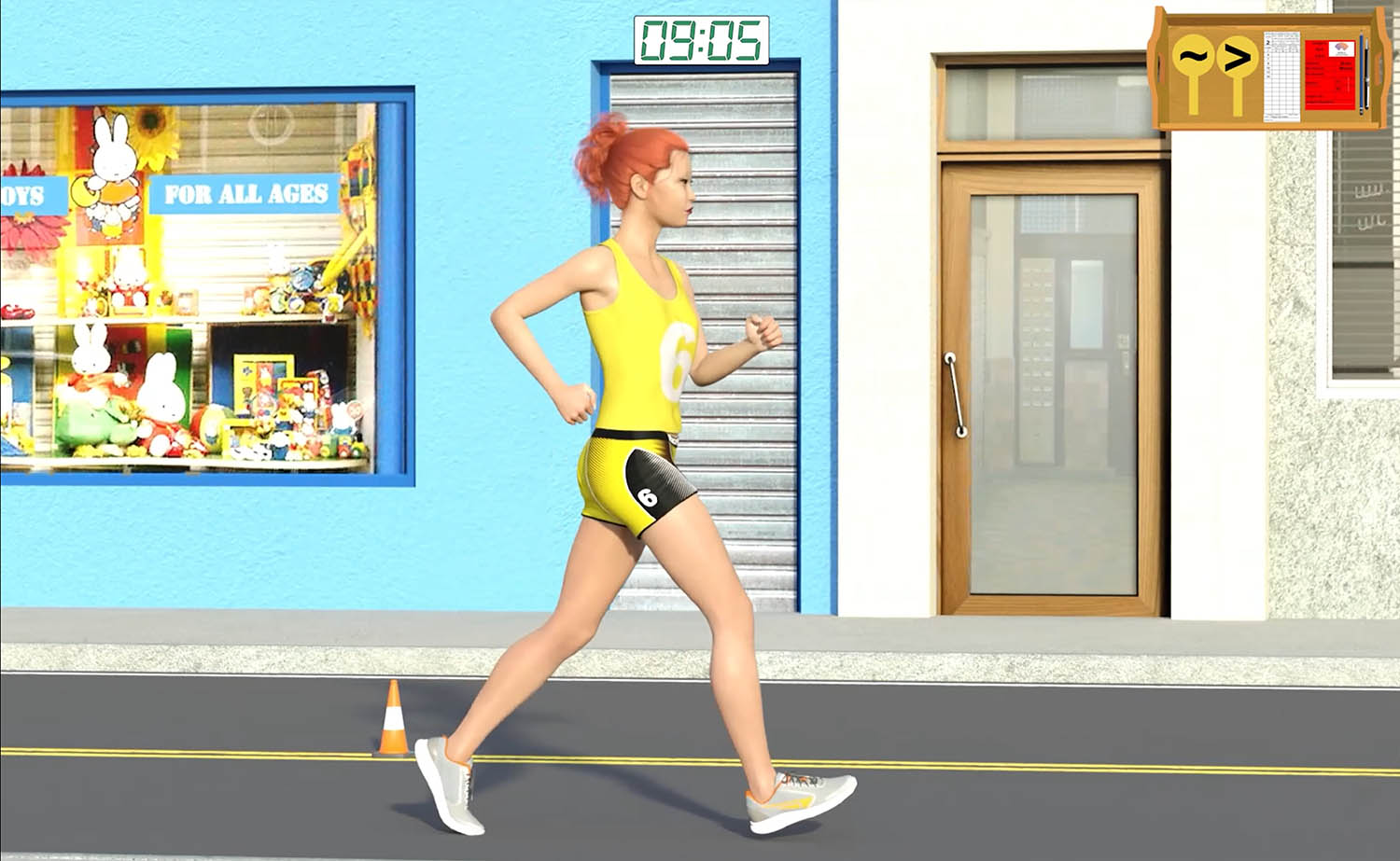
The trailing walker, #6 is also walking legally.
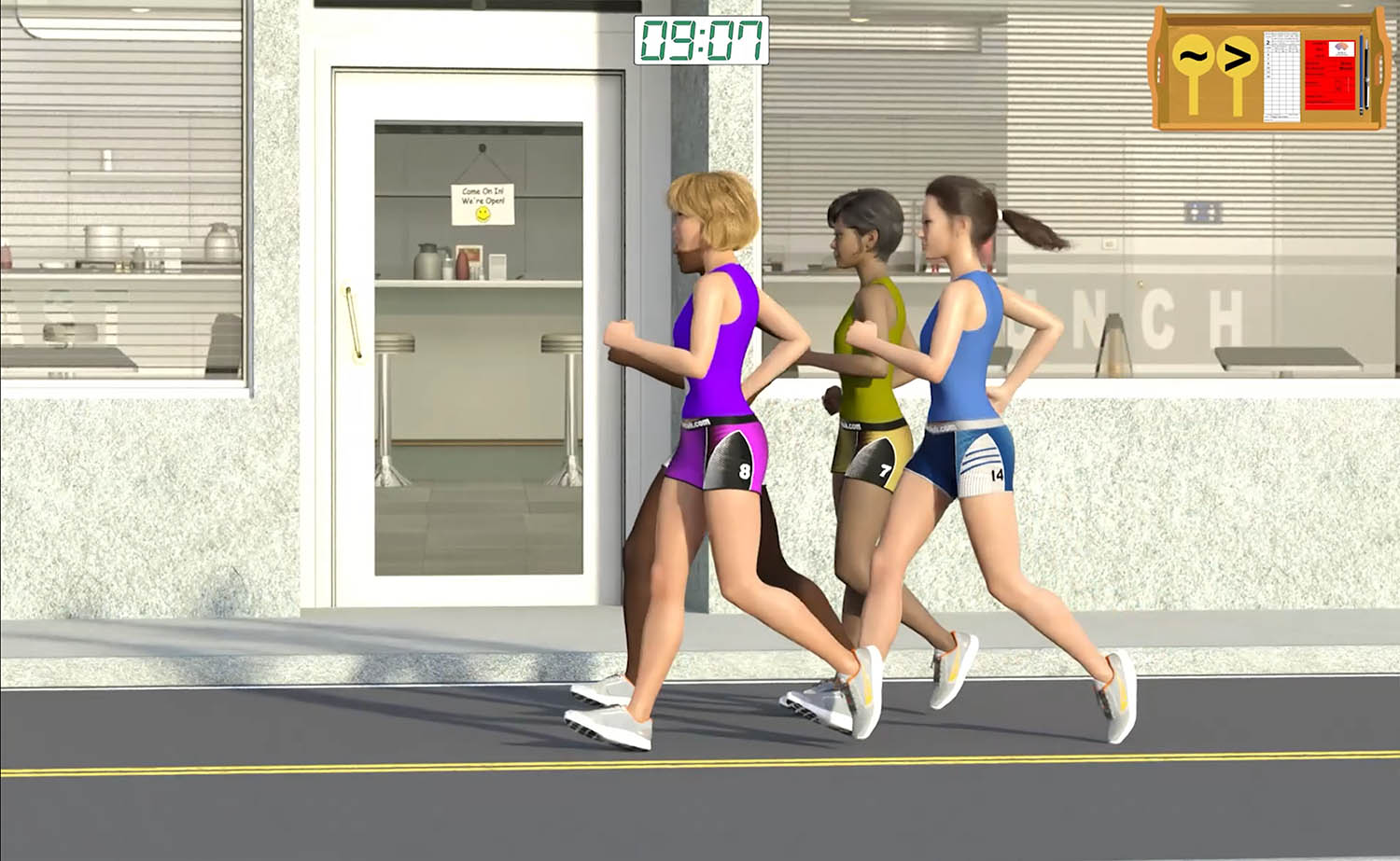
It is now 9:07, and the first four walkers are coming from the other direction. Again, they are legal.
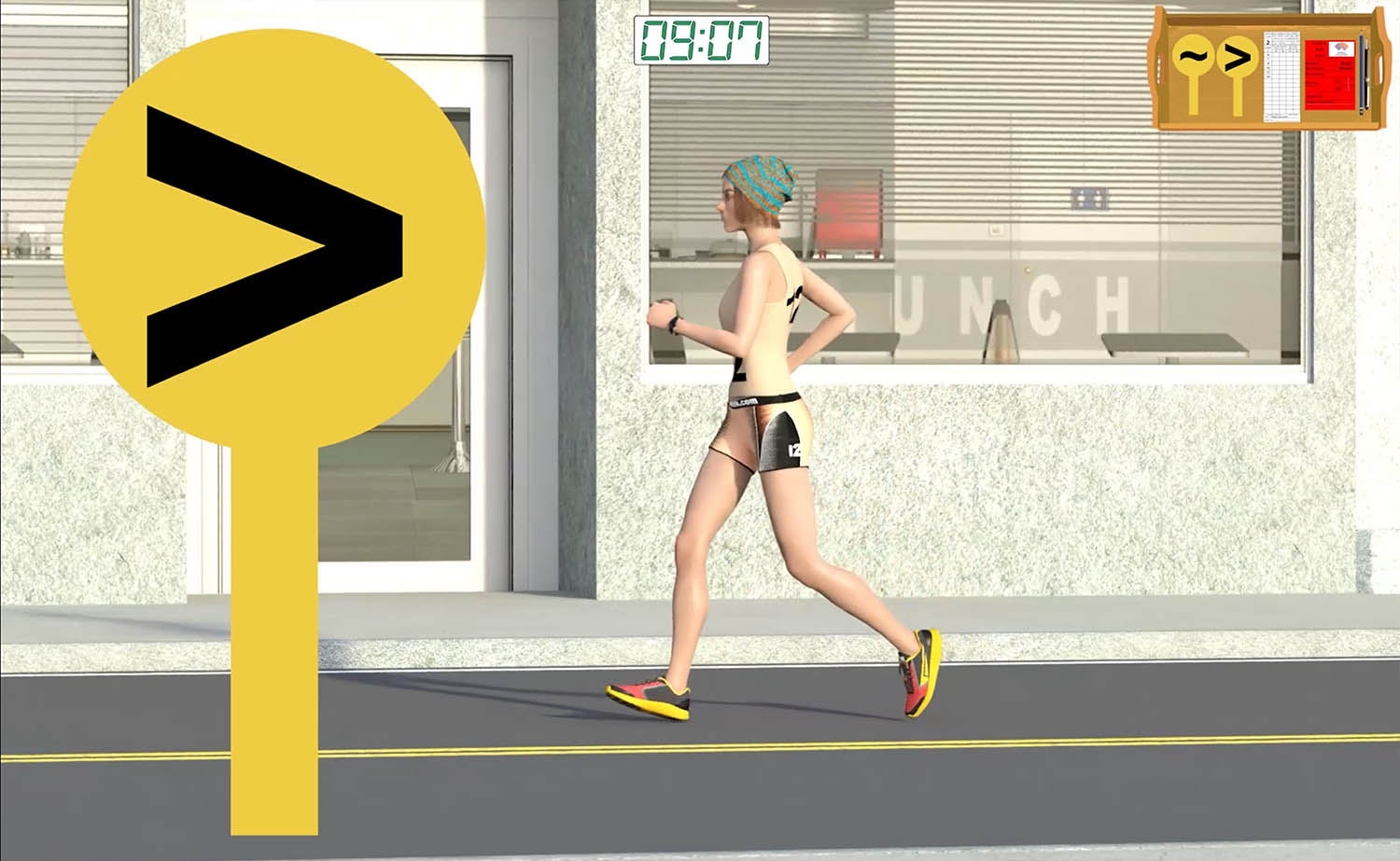
When Walker #12 passes by, she is still bent kneed, so we show her the bent knee paddle.

Make a notation of the time we showed her the paddle under the Yellow Paddle bent knee column in the row next to Competitor #12.
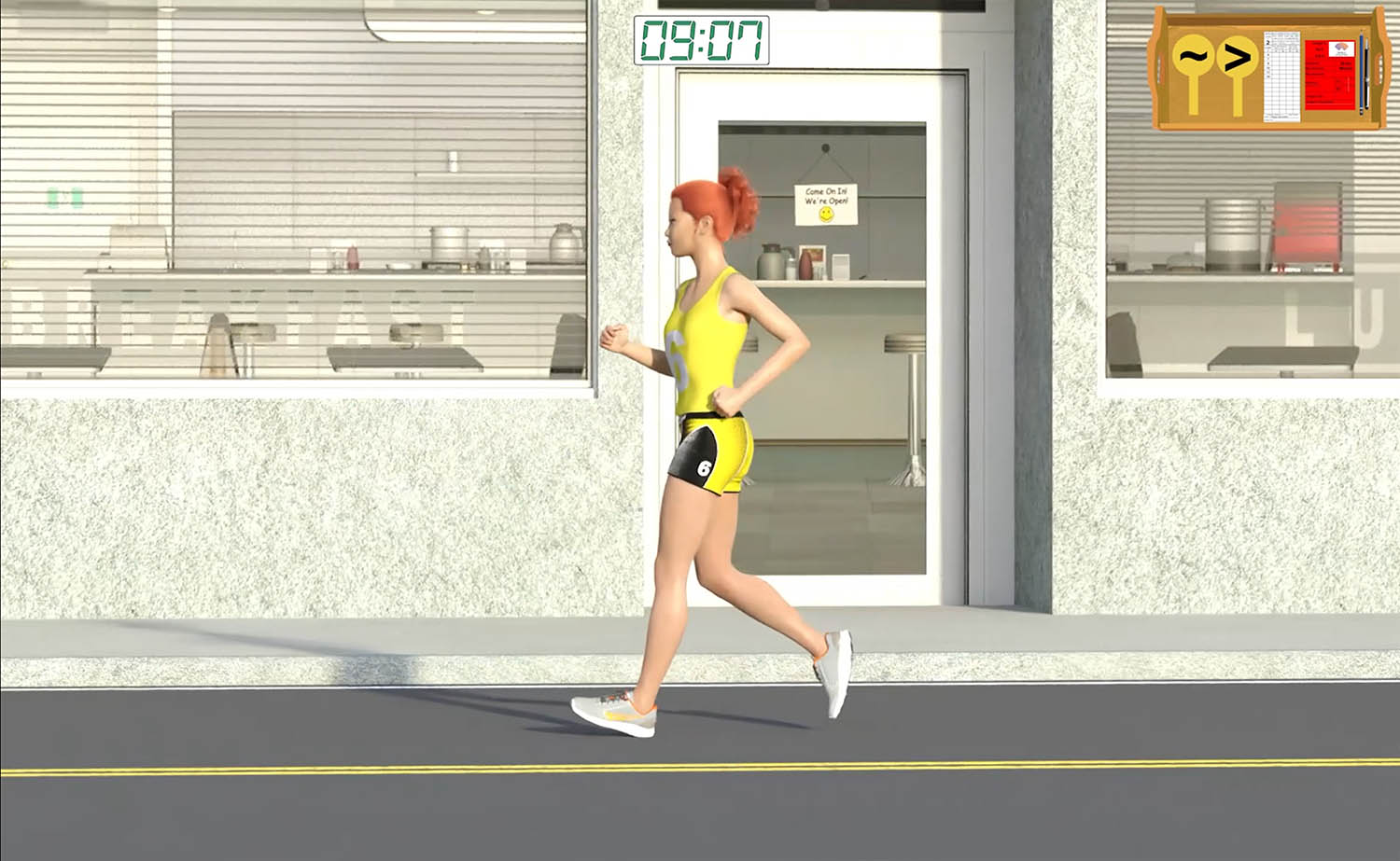
The trailing walker, #6, continues to walk legally.

All the walkers pass by on Lap 2 on the near side of the course. First, we see the pack of #7, #8, #13, & #14. All are walking within the definition of race walking.
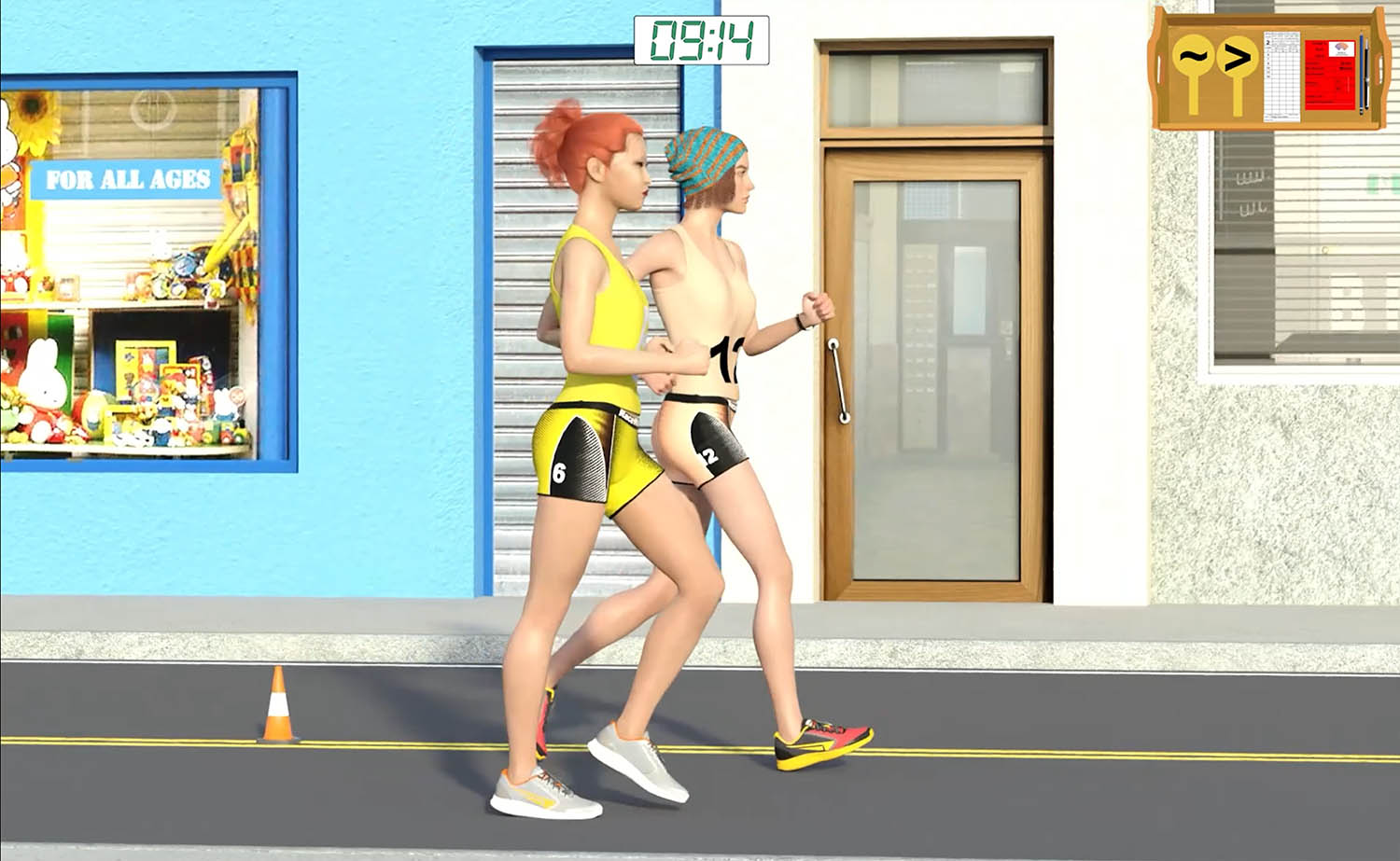
Numbers #12 and #6 are trailing behind the lead pack of 4. We have a partially obscured view of #12, but it’s obvious she is violating the bent knee portion of race walking.
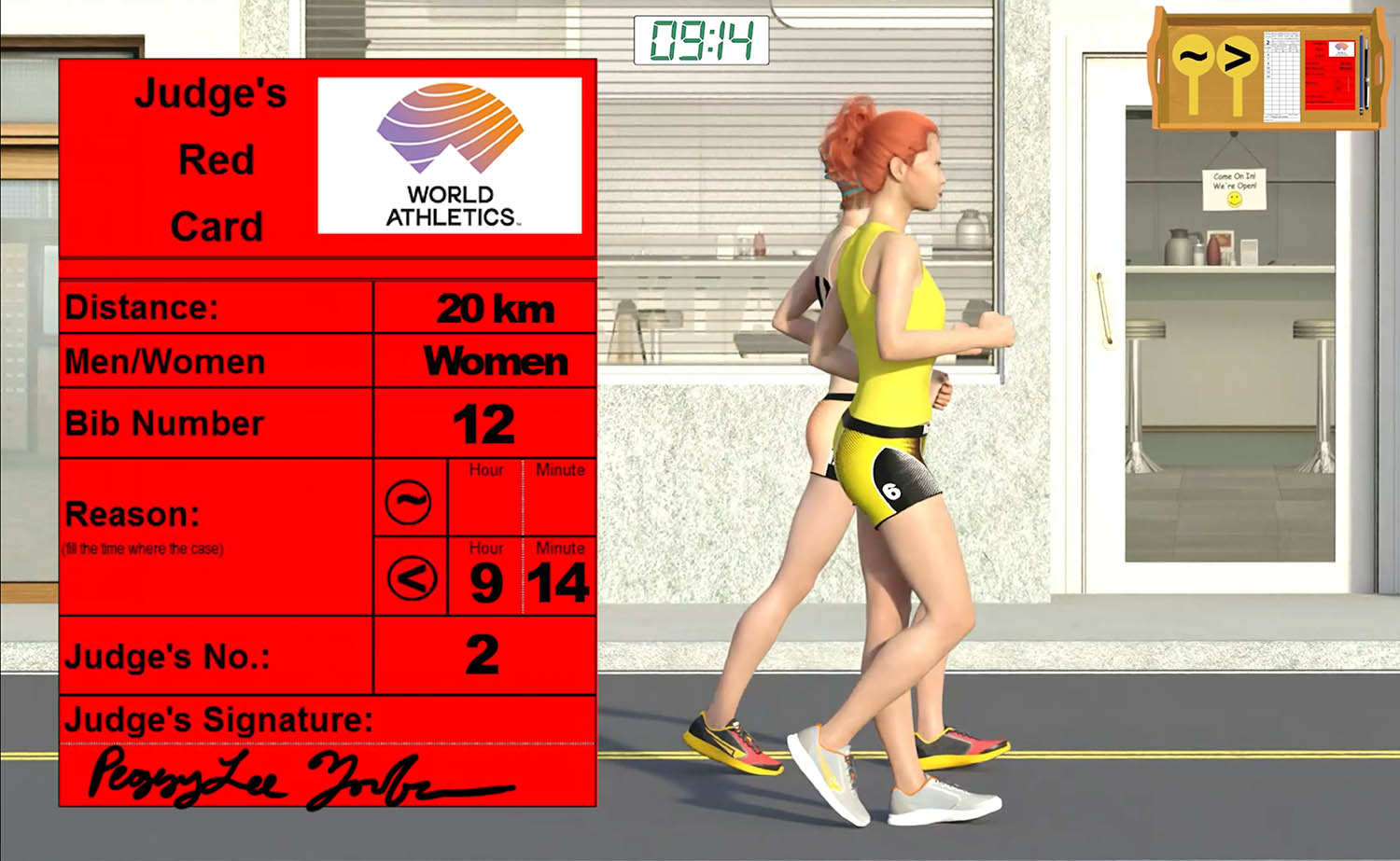
So, we decide she should receive a red card, a proposal for disqualification. We write her number on the red card and note the time of day, which is 9:14, next to the bent knee symbol and sign the card. We send the red card to the recorder.
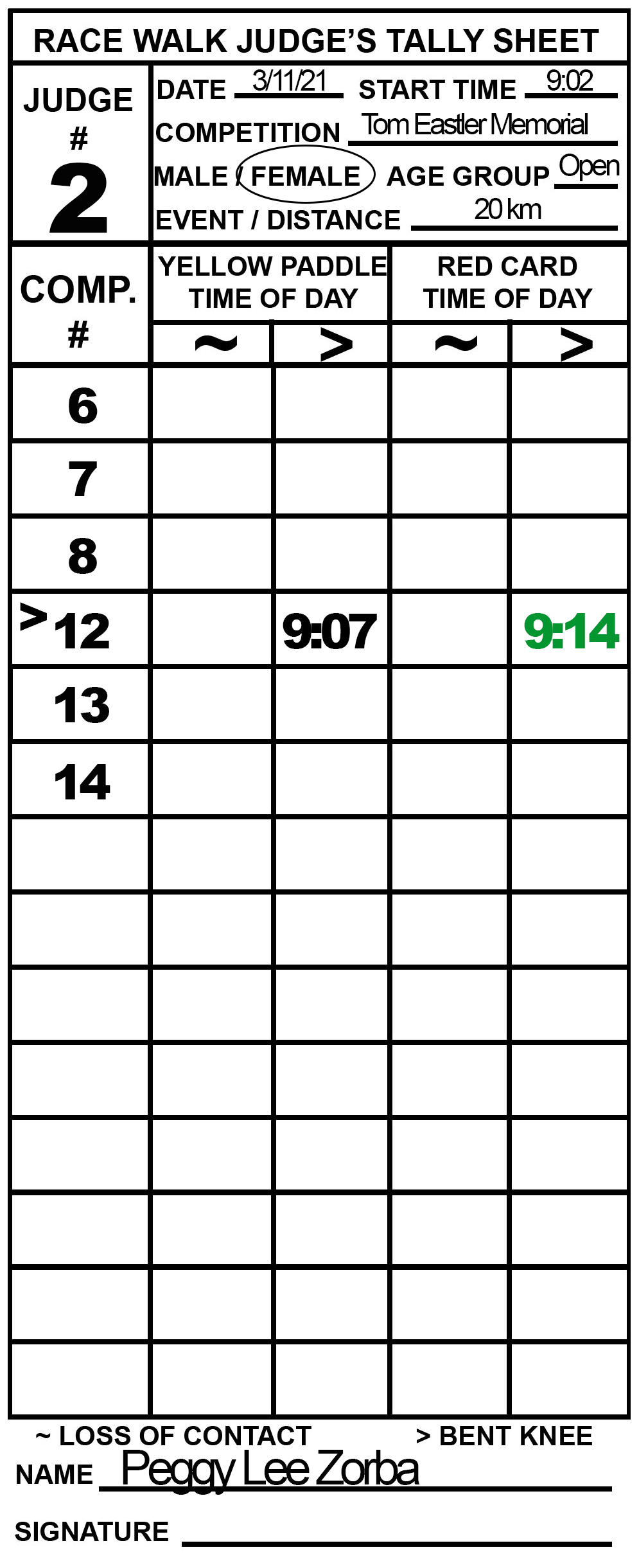
We also note the time we wrote the red card in the red card column for bent knee on the row associated with her number.
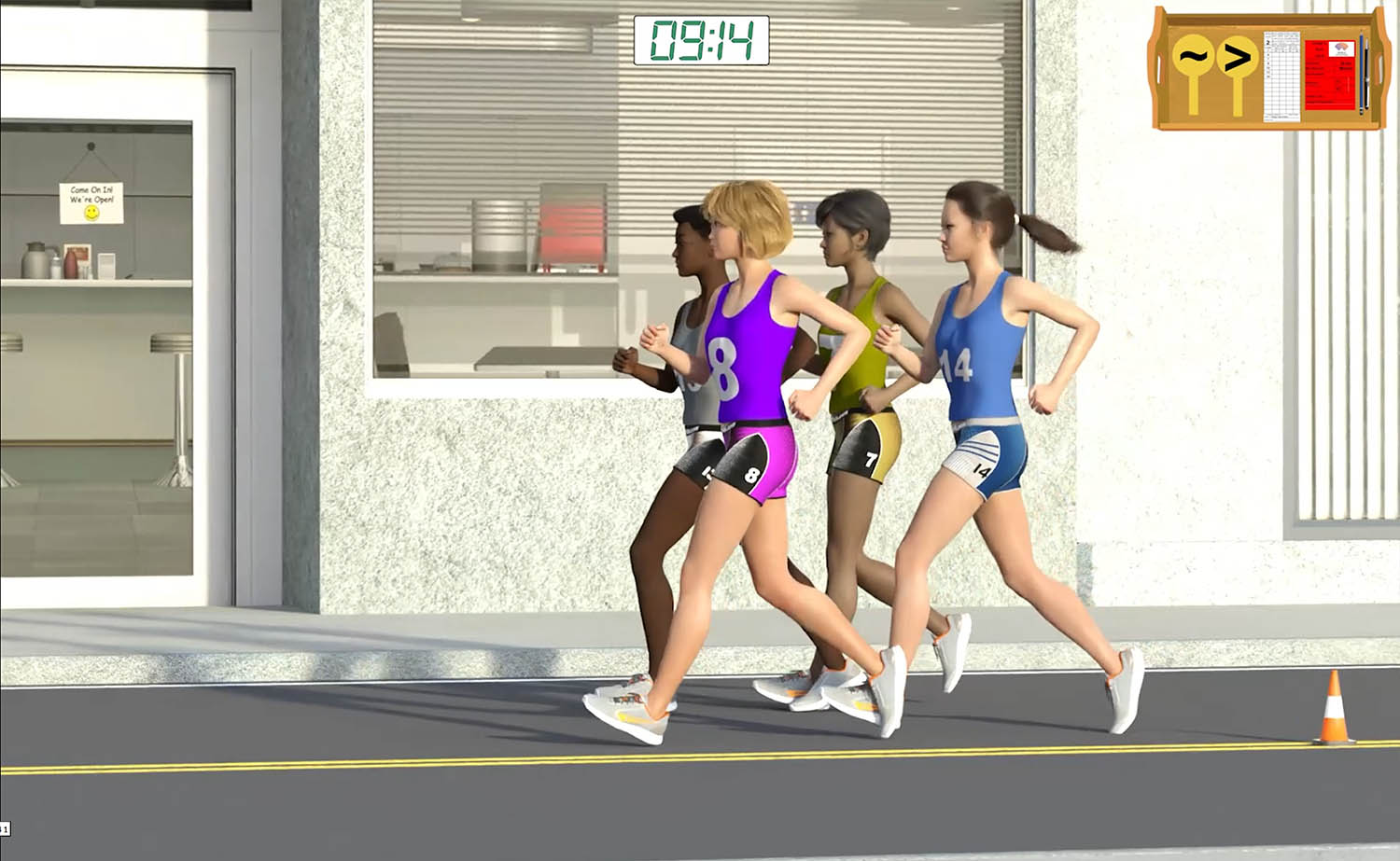
Again, our elite pack walks past. All are walking within the definition of race walking. Remember, at an elite level most walkers are walking within the definition of race walking.

Now, Walker #6 passes Walker #12 on the far side of the course. Walker #12 is struggling to keep up with Walker #6 and has allowed her technique to deteriorate. She is walking with even more pronounced bent knees. However, we already gave her a proposal for disqualification, so we take no action.
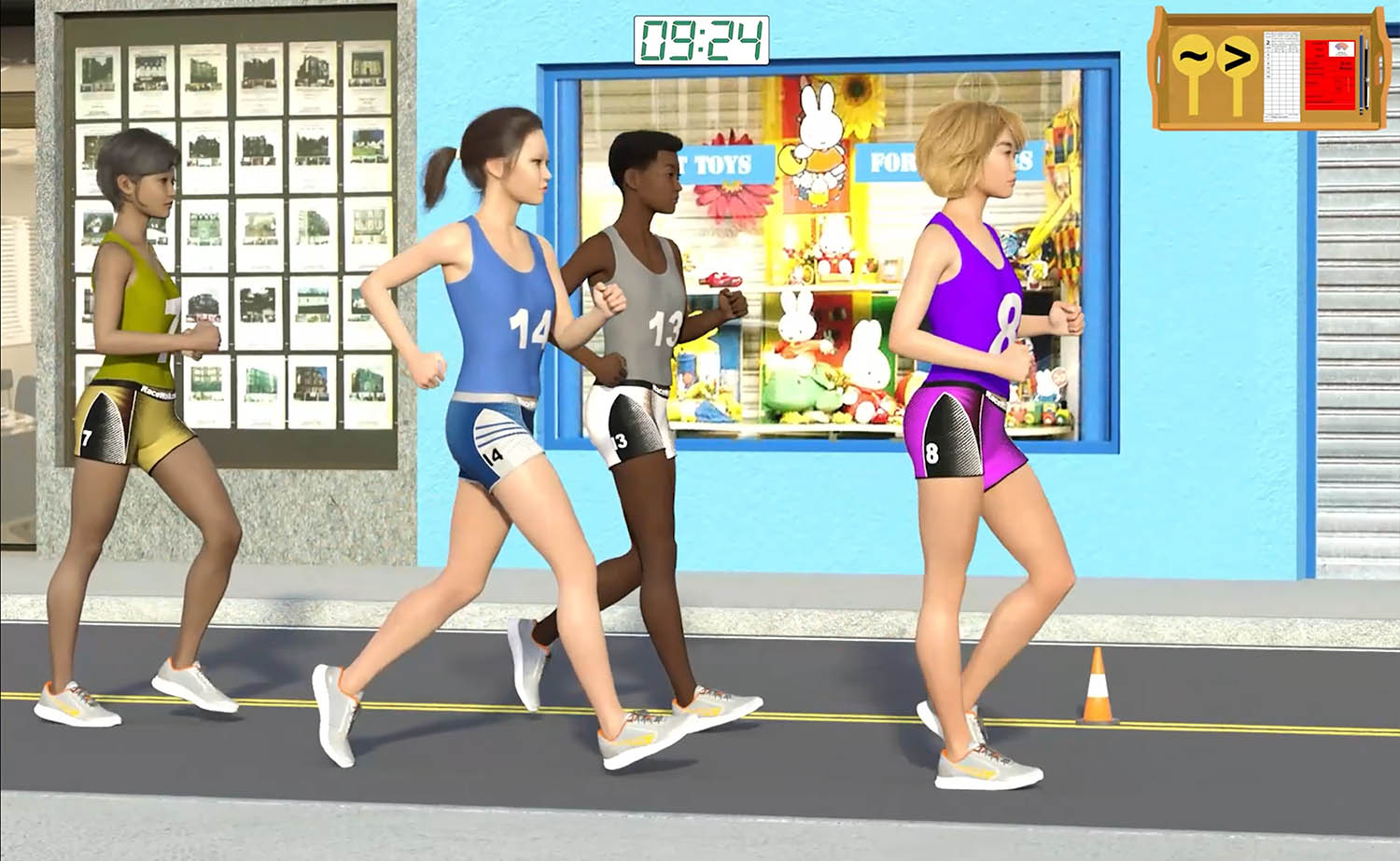
The walkers come by on the near side, in the same order. With #7 slightly behind walkers #8, #13, and #14. All are walking within the definition of race walking.

When the lead pack comes by on the other side, we notice that walker #8 has visible loss of contact.
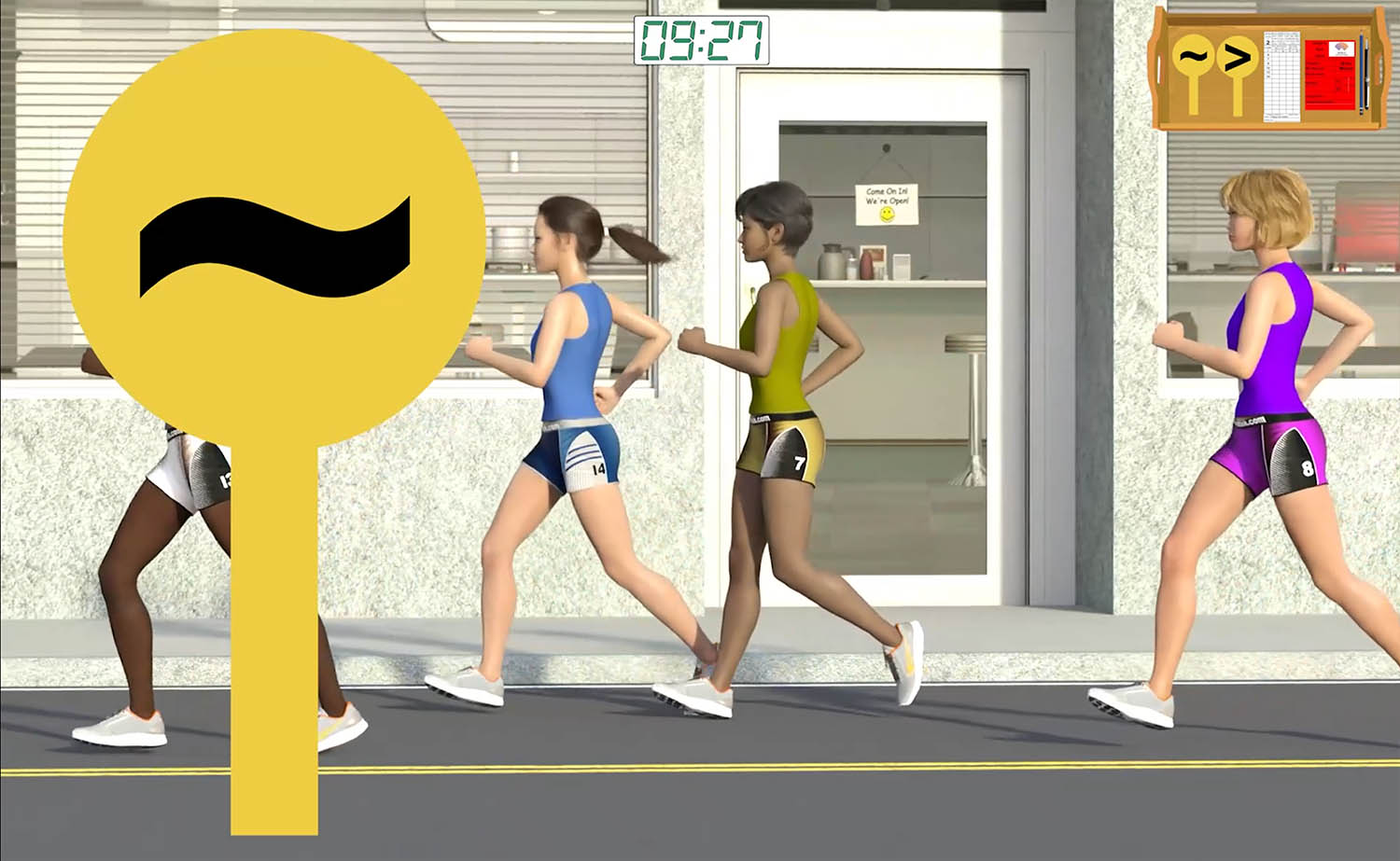
Since, we will have an opportunity to watch her again, we quickly show her a yellow paddle for loss of contact.
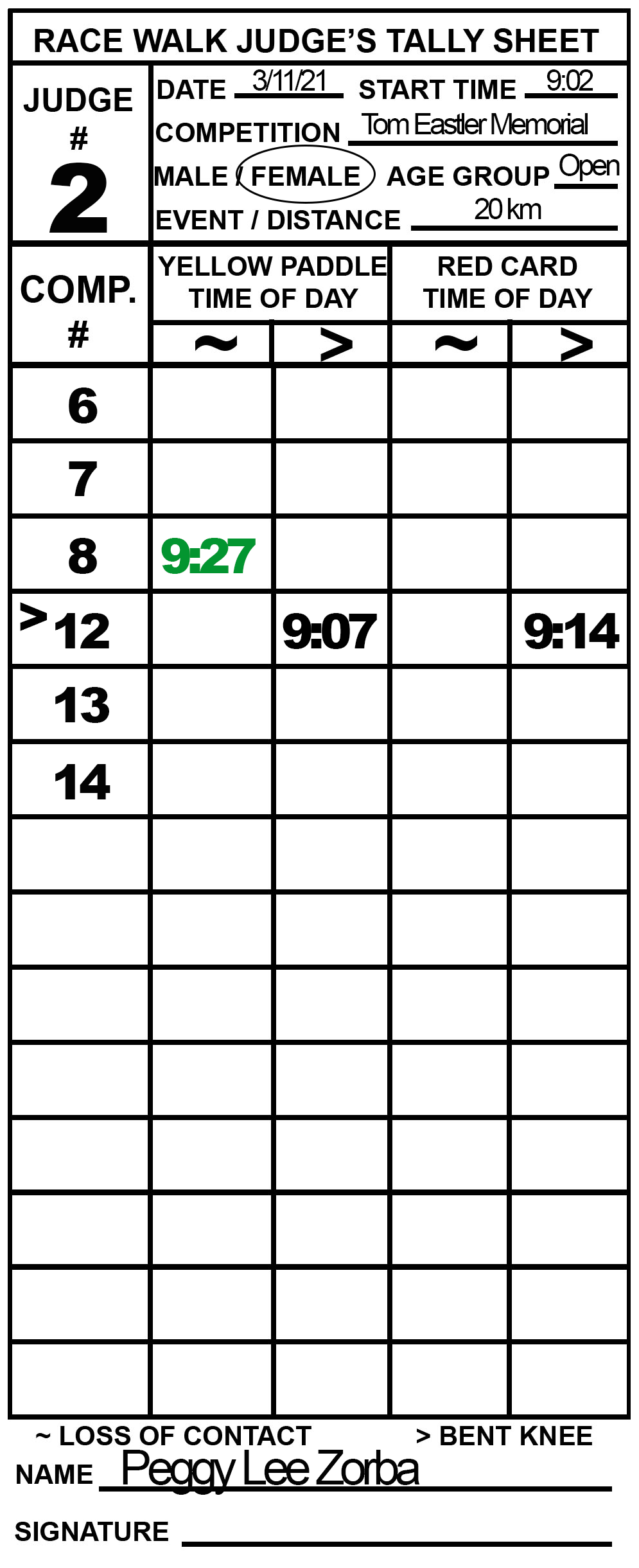
Note the time of day, 9:27, in the yellow paddle column for loss of contact next to competitor #8.
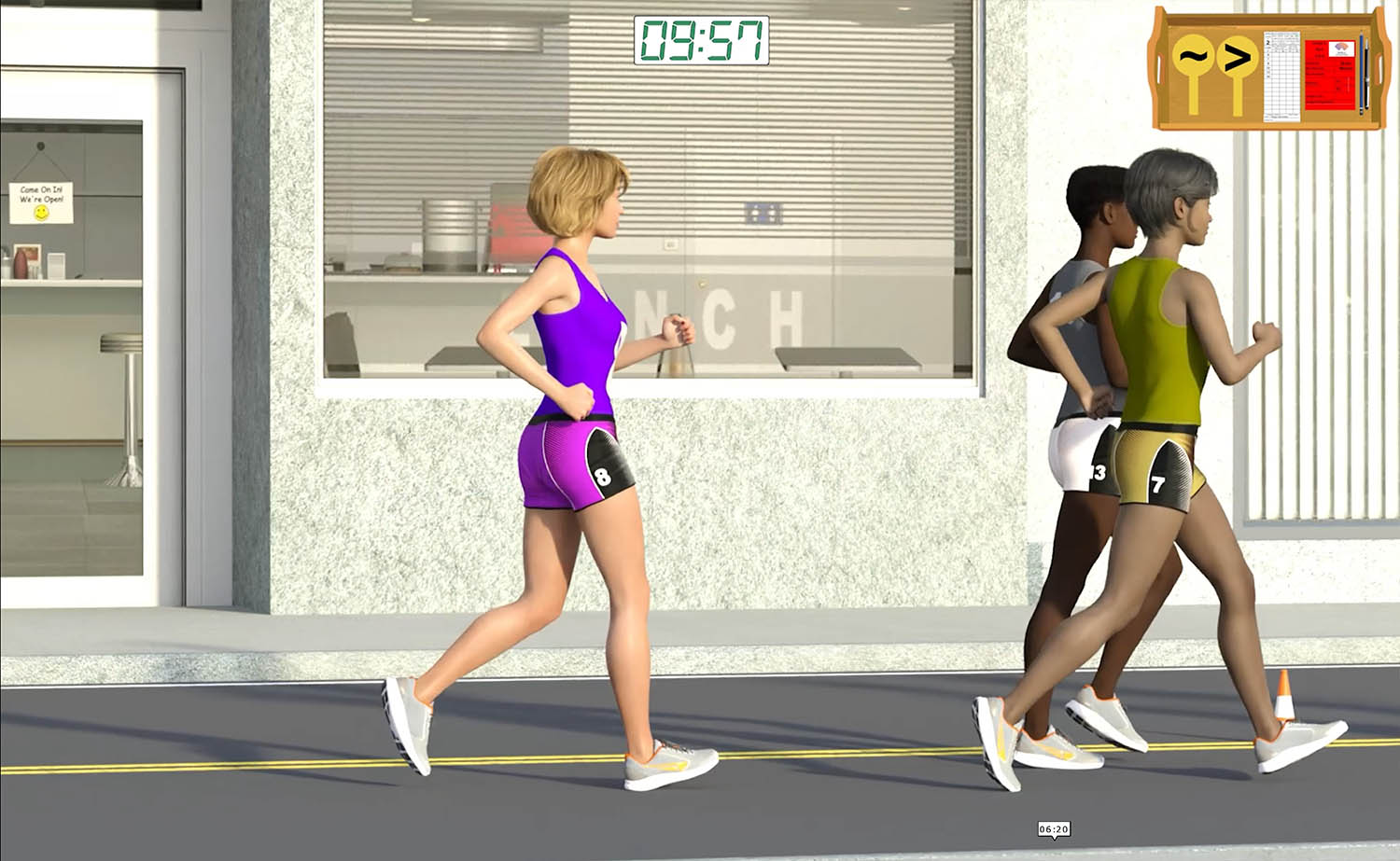
Walker #6 has joined the lead pack and Walker #8 is showing the strain and fatigue of fighting to stay with the lead pack. She is now walking with bent knees. We quickly check our tally sheet and see we have already given her a yellow paddle for loss of contact and we haven’t given her one for bent knees. And according to the rules, we may. However, as the walkers move away we are not quick enough to show her paddle.

As the walkers come back, there are three laps to go in the race. We will see Walker #8 again. So, we give her a yellow paddle for bent kneed walking with a hope that she will correct her technique after she receives our caution for bent knees. We mark the tally sheet with 10:00, the time of the yellow paddle, in the column for bent knees next to her number.

It’s the last lap. And #6 has moved up and is challenging for the lead. We see #14 is coming off the ground, but are unable to show her a yellow paddle. #13 and #7 and following a few strides behind. With #8 trailing behind, but she has corrected her technique.
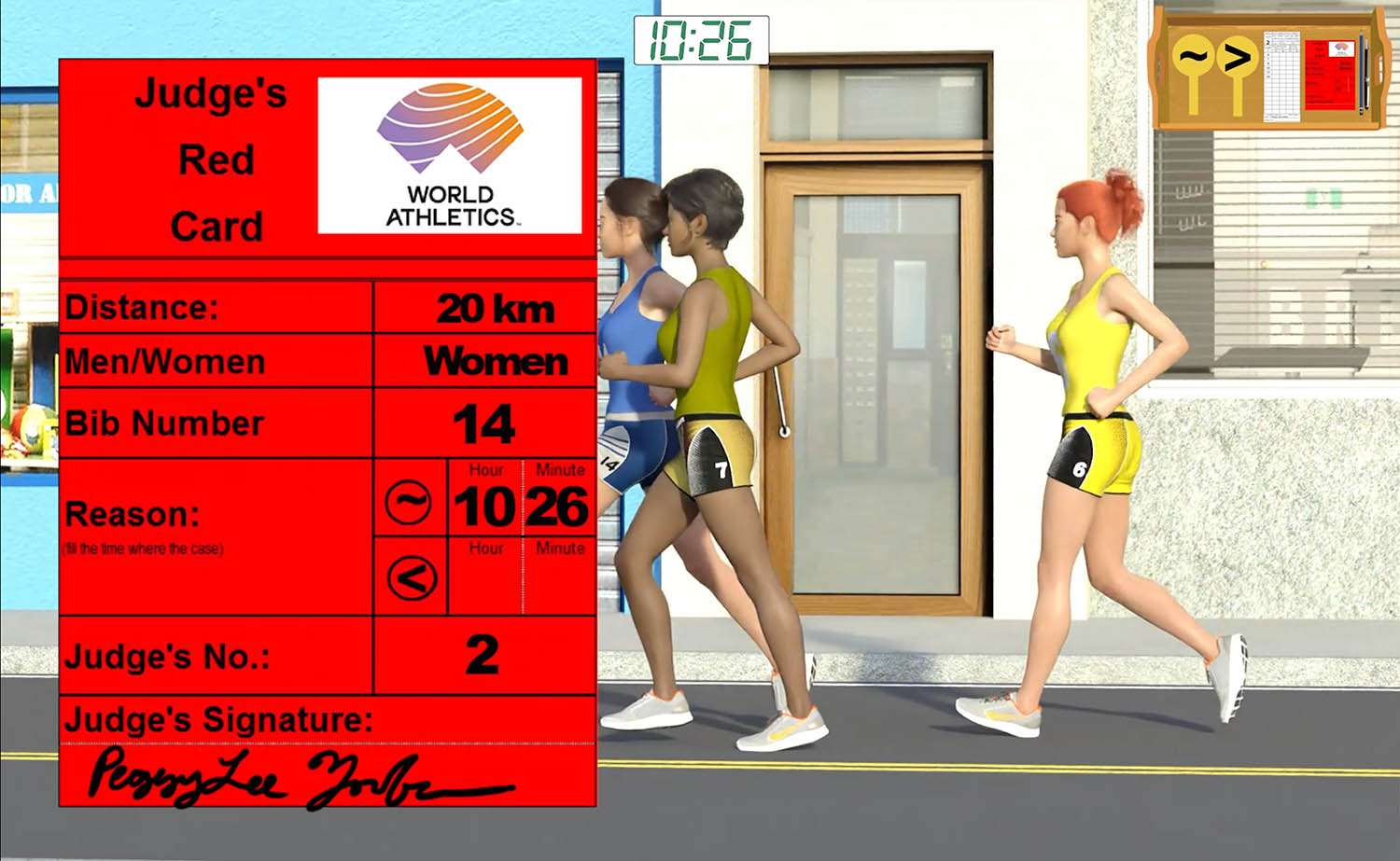
It is the last time we will see the walkers as they head to the finish. The race has changed. Walker #7, who is walking legally, is now one stride behind walker #14. Walker #14, has broken free of #6, but is way off the ground. #14 is not walking within the definition of race walking. We decide to write her a red card for loss of contact, without first showing her a yellow paddle, because we will not see her again. We write her number on the red card and we write the time of the infraction, 10:26, next to the loss of contact symbol. We sign the card and send it to the recorder.
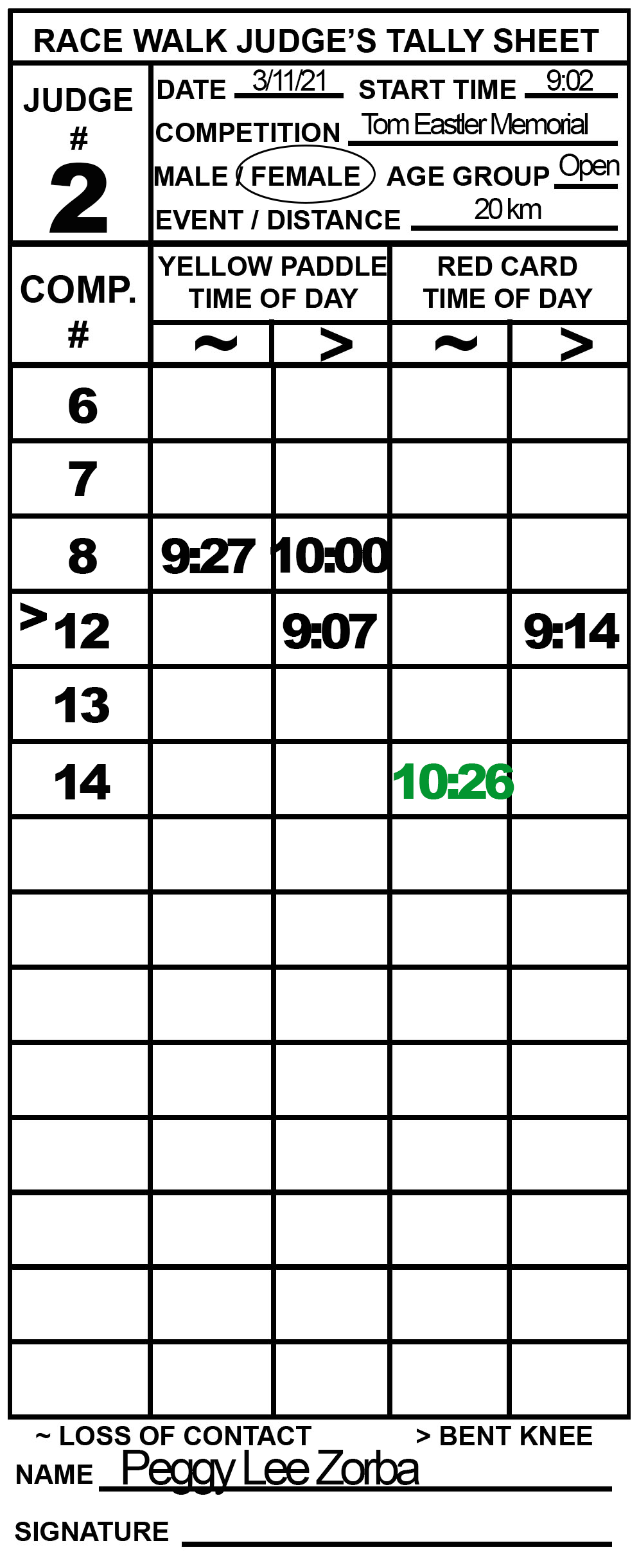
We write the time of the red card for loss of contact, 10:26, on the tally sheet under the red card column in the row next to her number.

Walkers #8 and #13 come by and the race is concluded. We sign our tally sheet and send it to the recorder.
Now Take the Self Test on How to Fill Out a Tally Sheet
Next Lesson: Filling Out a Summary Sheet